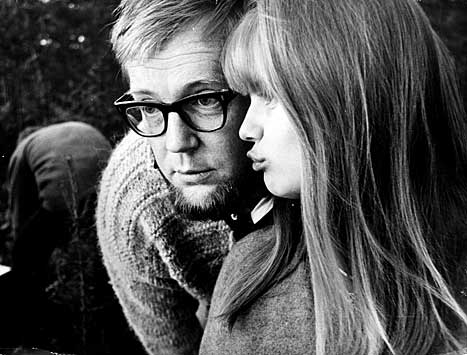In Byrne v. Karalexis, 396 U.S. 976 (1969), the Supreme Court stayed a temporary injunction that a federal district court had issued against further prosecutions of theater owners. The injunction had been issued pending appeal of a state obscenity conviction for showing the film I Am Curious (Yellow).
Douglas disagreed with stopping an injunction against prosecution of theater owners
In dissent, Justice William O. Douglas argued that the injunction would not interfere with the criminal conviction already obtained; he also thought that the threat of additional prosecutions jeopardized free speech.
Douglas said First Amendment protected obscenity
He further used the occasion to argue that the First Amendment protected obscenity, not because it was good, but because “we cannot be faithful to our constitutional mandate and allow any form or shadow of censorship.”
Douglas believed that the First Amendment protected “obscenity,” along with “sacrilege,” “malice,” or “false, scandalous, and malicious writings.”
Other dissenters though Court’s intervention was inappropriate
Justice Hugo L. Black agreed with Douglas that the Constitution prohibited such prosecutions, but he also thought that it had been inappropriate for a federal court to step in to enjoin a pending state criminal prosecution.
In another opinion, Justice Potter Stewart also expressed the view that such intervention was inappropriate.
Case was later remanded
In Byrne v. Karalexis, 401 U.S. 216 (1971), the Court vacated the lower court judgment and remanded the case for reconsideration in light of its opinions rendered the same day in Younger v. Harris and Samuels v. Mackell, which involved instances of federal courts intervening in pending state prosecutions.
Justice William J. Brennan Jr., joined by Justices Byron R. White and Thurgood Marshall, would have reversed the district court judgment rather than remand the case.
John Vile is professor of political science and dean of the Honors College at Middle Tennessee State University. He is co-editor of the Encyclopedia of the First Amendment. This article was originally published in 2009.

